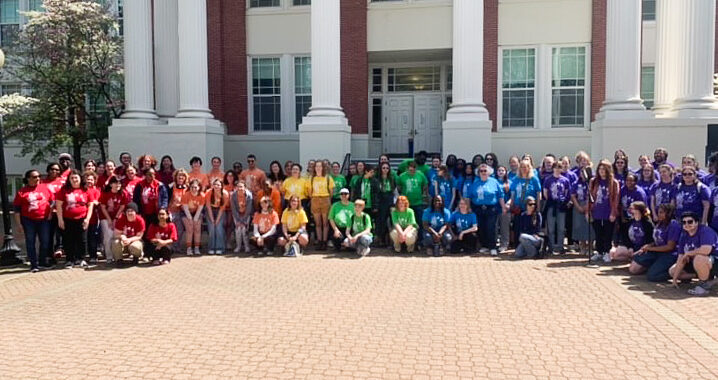Future of January term is unclear, despite this year’s success
4 min read
Despite the J-term's financial success, faculty contract dates complicate the possibility of having another winter term in the future. | umw.edu
by SHAWN FLEETWOOD
Staff Writer
Prior to students’ return to campus for spring 2021, the University of Mary Washington hosted its first-ever January term, or J-term. The condensed, three-week semester provided students with the opportunity to earn needed credit hours, while also offering a variety of courses not typically available during the regular fall and spring semesters.
According to Paul Messplay, the vice president for administration and finance and chief financial officer, the success of the January term exceeded expectations, with the shortened semester generating a total revenue of $395,566. “We have been pleasantly surprised by the success of the J-term,” he said. “Since this was a new offering, we really didn’t know what to expect.”
Messplay also detailed how the profits from the J-term will be spent, with $163,000 going towards paying faculty members. “The remaining net revenue from the J-term will be used for extraordinary expenses being incurred by the university in managing the pandemic, such as the additional COVID testing we will be doing during the spring semester,” he said.
The January term cost the University less than a typical semester, according to Messplay. This is primarily due to the lack of usage of university utilities.
In-state undergraduate students were charged $335 per credit hour, while out-of-state undergraduates were charged $1,016 per credit hour. For graduate students, in-state residents were charged $482 per credit hour, while out-of-state residents were charged $1,022 per credit hour. There were also additional costs related to student billing, records administration, financial aid, payroll and other administrative support.
In addition to the financial success of the term, participating faculty members viewed the semester as a great opportunity for both professors and students.
“I saw it as an opportunity to teach a class I really like that I haven’t had a chance to teach for a while,” said professor Zach Whalen, who taught the course Games and Culture. “I’m proud of the course I was able to put together for my students, and I think they appreciated it and ended up learning a lot.” Whalen added that he was in favor of having the J-term and would consider teaching for one in the future.
Assistant professor Dr. Adria Goldman, who co-taught Professional Communication with Dr. Emily Crosby and was neutral on having a J-term, discussed how students were able to get a lot out of the course in such a short period of time.
“Having advised Communication and Digital Studies (CDS) students looking for major electives and who expressed interest in J-term, as some were trying to graduate early, it was also nice being able to add to the course offerings,” Goldman said. “We had a very engaging group. There was great discussion and group work. So, in addition to learning from the course instructors, the students also learned from each other. Dr. Crosby and I were impressed with their work.”
While both professors saw the experience as a positive one, both caution that the condensed semester requires intense focus and dedication. “J-term is a cool opportunity to take a course in between normal semesters and fulfill another requirement towards your degree,” said Goldman. “But the course load is intense. Make sure you are comfortable with the decision and, if so, that you’re willing to devote time and effort. It takes a great deal of dedication, self-motivation, responsibility, and time management.”
Feedback regarding the January term has also been very positive from participating students. Junior English major Victoria Percherke stated that taking a class during J-term was beneficial in helping free up her spring semester schedule.
“I got an internship with Campus Recreation, and I wanted to leave more room for that in the spring semester, so taking a course with J-term seemed like the best option for that,” said Percherke. “I would recommend taking a J-term because it gives students more space to breathe for the following semester to work on something else like mental health, a job, or to take more time with other classes.”
Junior and communication and digital studies major Malia Washington said that she would take another J-term class if courses that relate to her major are offered.“It was a great way to stay busy while also taking a three-credit class in the span of three weeks,” she said.
There are, however, challenges to having a January term in the future. During a Board of Visitors meeting on Jan. 20, University Provost Nina Mikhalevsky detailed how the level of interest among faculty and faculty contract issues could lead to difficulty when planning future winter semesters.
“The interesting question now is going to be the faculty and whether the faculty want to continue and the degree to which we can support that decision,” she said during the meeting. “I can tell you the major obstacle to improving a permanent J-term is actually faculty contract dates […] And if we have a J-term, we will actually have to alter faculty contract dates. That is going to require significant handbook changes.”
Further deliberation of potential future January terms will be heard at the University Faculty Council meeting next month.











